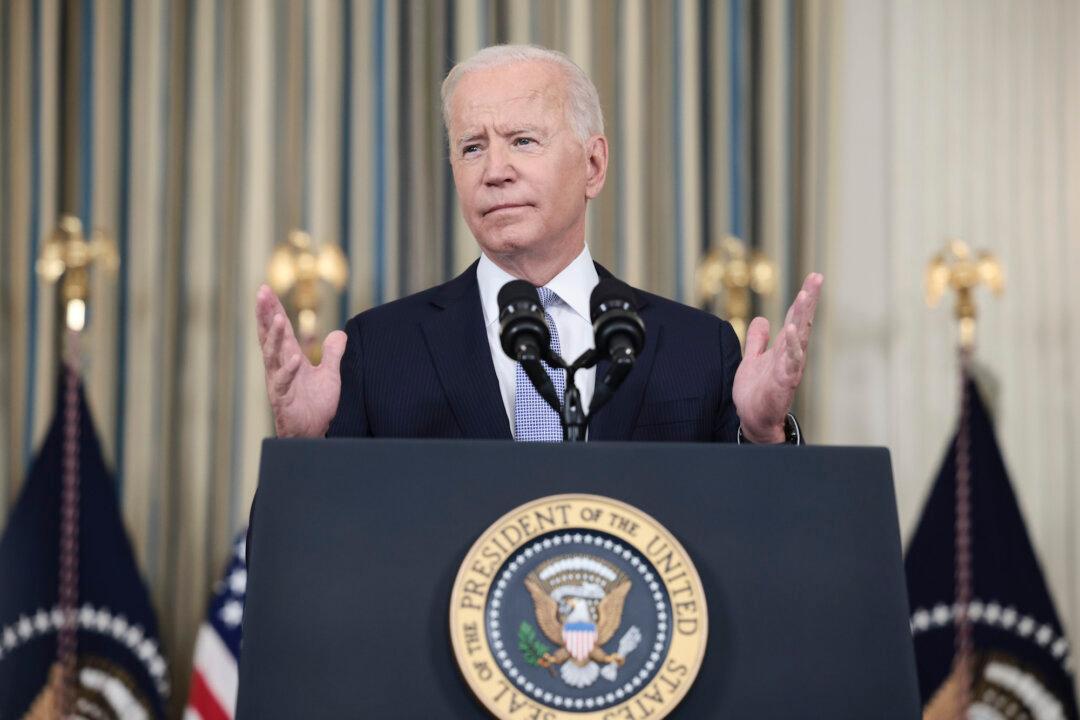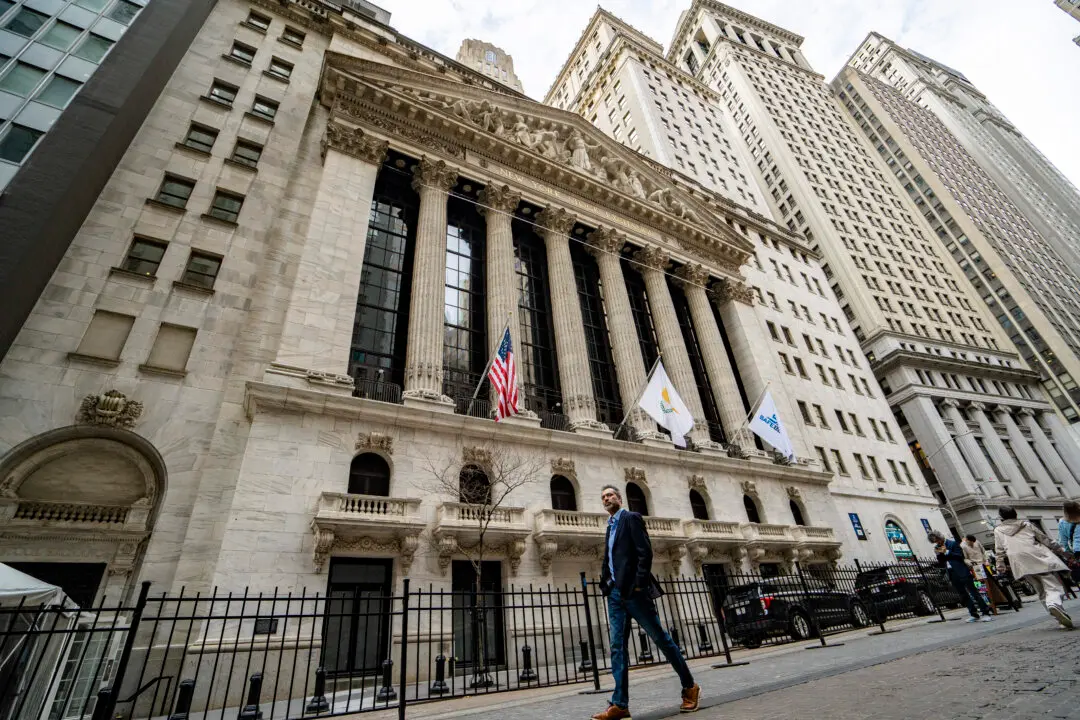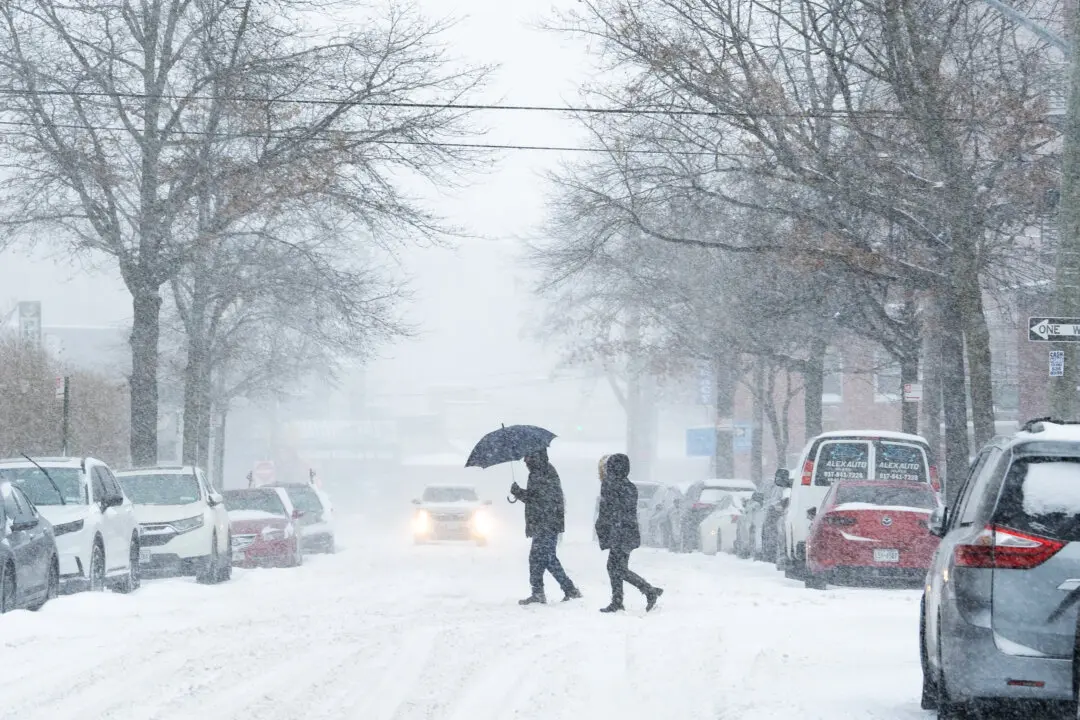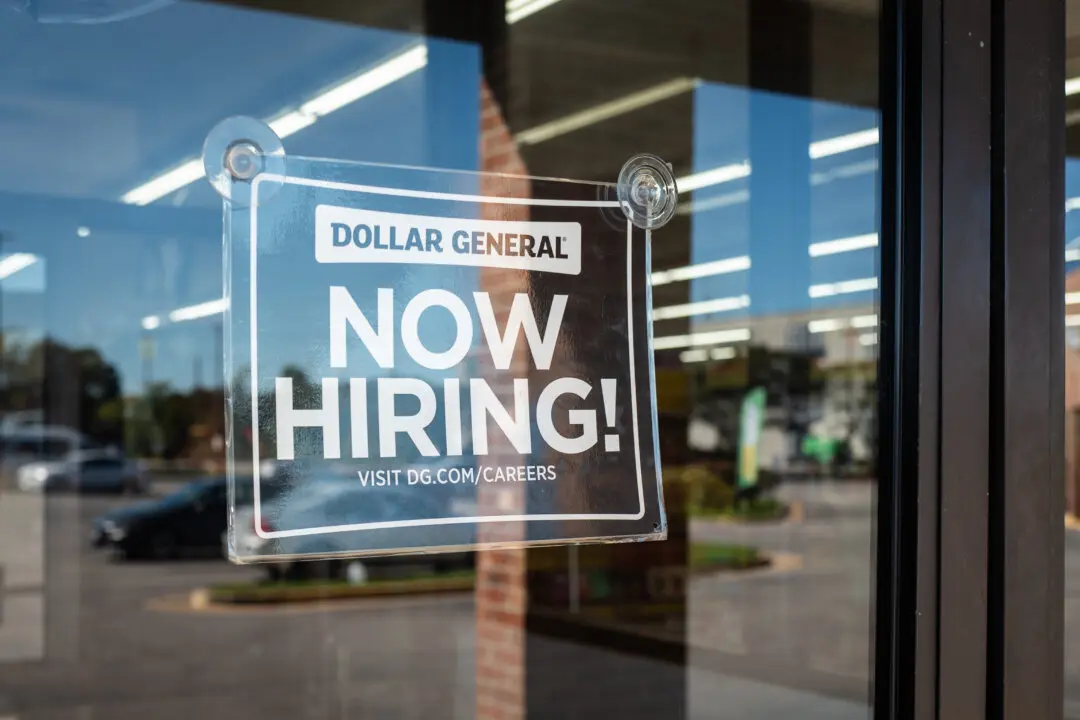Many Americans say that President Joe Biden and his administration’s policies are responsible for growing inflation, a new poll found.
According to a Morning Consult/Politico survey (pdf), 62 percent of registered U.S. voters believe the White House is responsible for the nation’s rising inflation.





